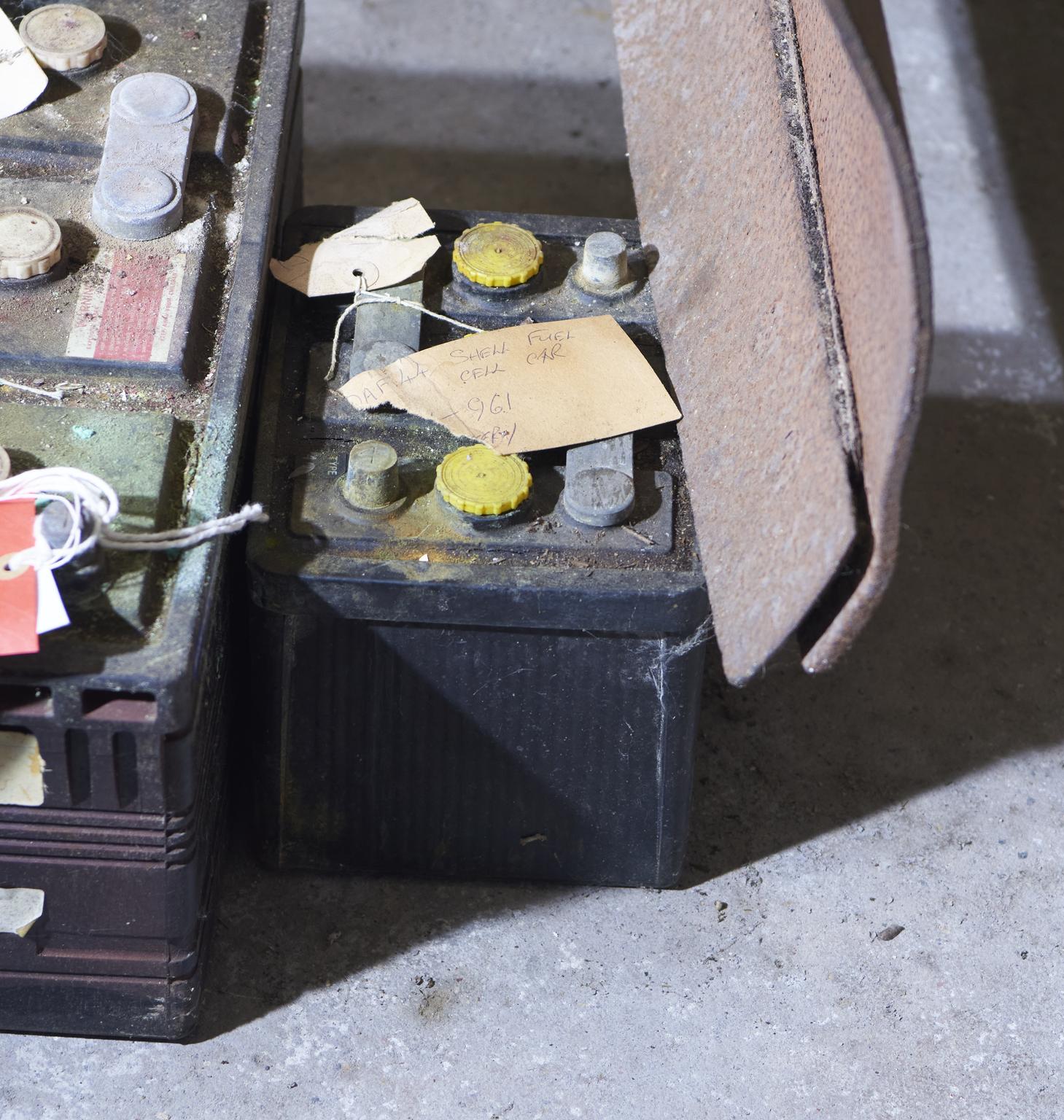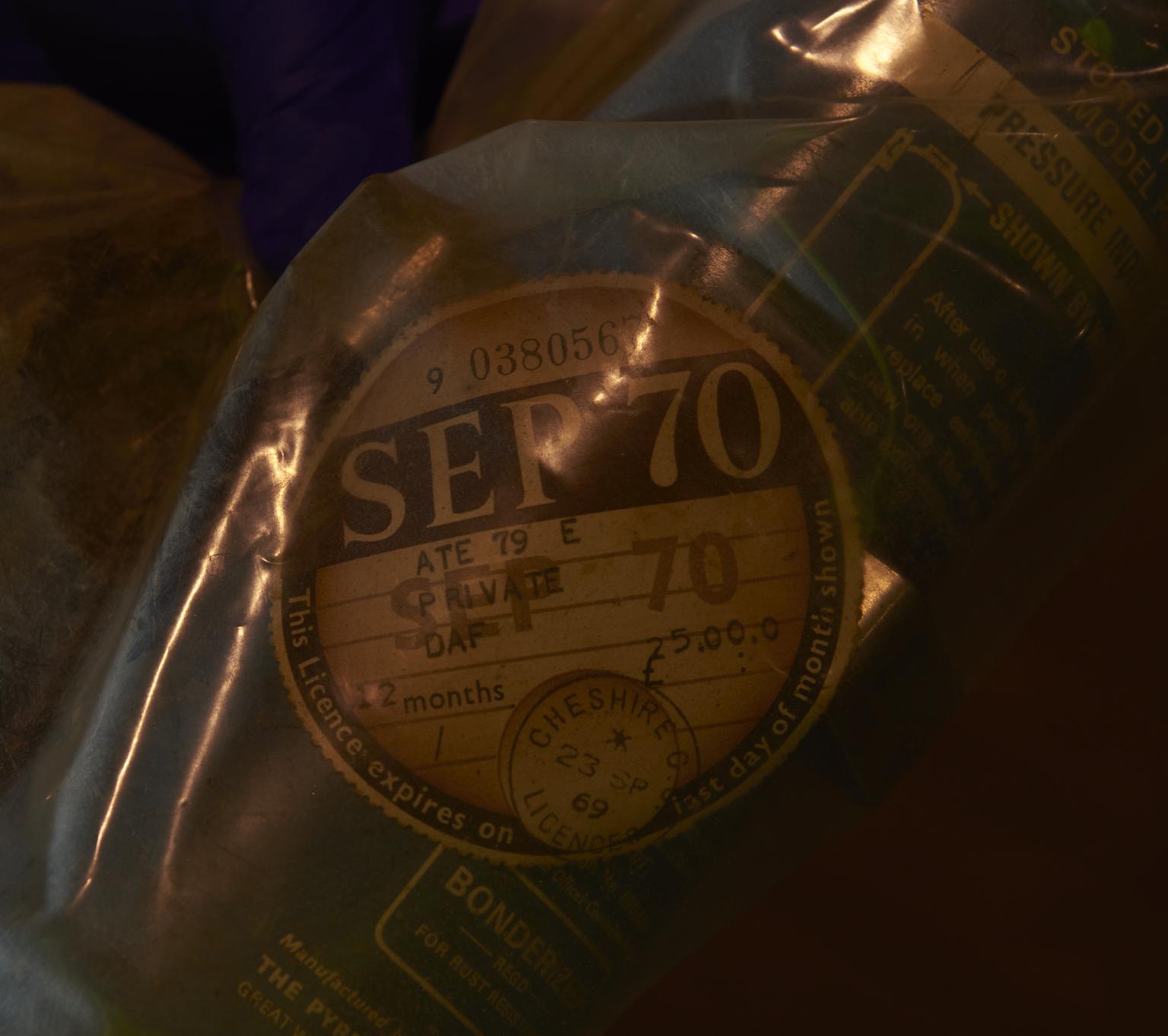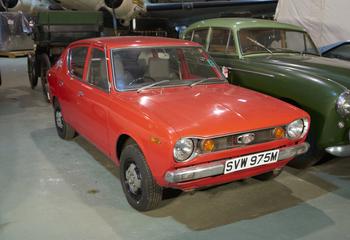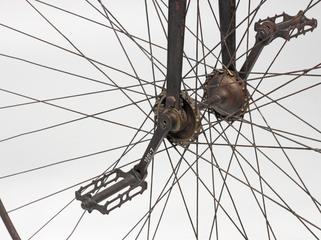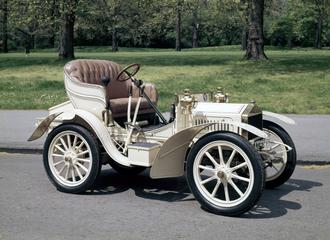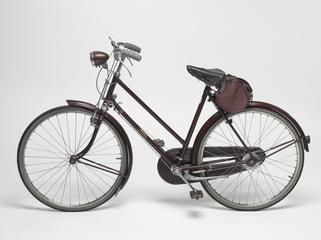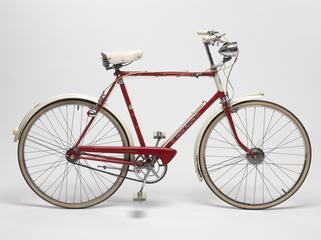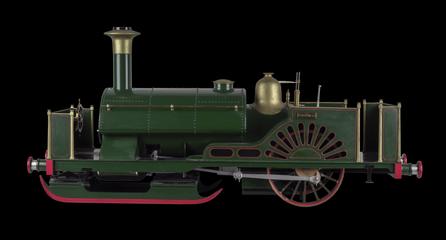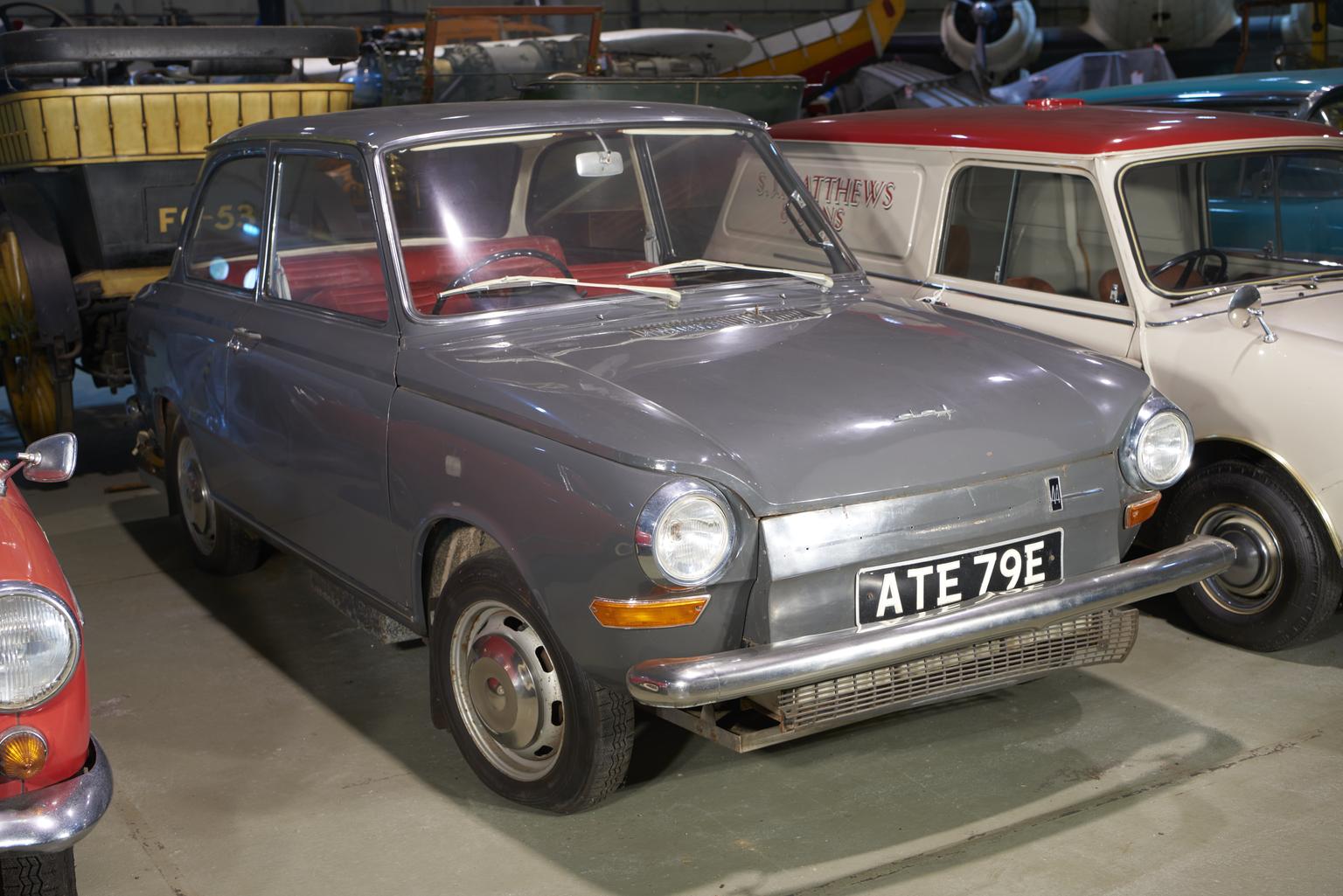
DAF 44 Petrol Car Converted to Fuel Cells for Propulsion
DAF 44 car, 1967, Registration no. ATE 79E, chassis no. 501 458, converted by Shell Research Ltd at Thornton Research Centre to be powered by a hydrogen fuel-cell to demonstrate the feasibility of fuel cells for vehicle propulsion.
The standard petrol engine has been replaced by a solid state control system developed by Lucas Research Centre.
The car has a top speed of 50 mph and a weight of 3,040 lbs. - 47% more than the standard DAF 44.
More
Based on a Daf 44 car, a small family car introduced in September 1966 by the Dutch company DAF, this hybrid vehicle was built by Shell Research Ltd at Thornton Research Centre to demonstrate the feasibility of fuel cells for vehicle propulsion.
The previous petrol engine was replaced by an electric motor controlled by a solid state control system developed by Lucas Research Centre. The fuel cells mounted in the boot of the car work by reacting hydrazine with air to produce electricity which provides the minimum amount of electric power required at average cruising speed. Additional energy for acceleration is provided by lead-aced batteries which are kept charged by these fuel cells during periods of low energy consumption.
The car has a top speed of 50 mph and a weight of 3,040 lbs, 47% more than the standard Daf 44. Although demonstrating the feasibility of fuel cell powered cars, the experiments at the time suggested that it was unlikely to be competitive with the petrol engine car. Proving this earlier hypothesis untrue, in recent years there has been a vast increase in hydrogen fuel cell electric vehicles (FCEVs) as they are more efficient than previous petrol run vehicles and only produce water vapour.
The experiments conducted on this converted Daf 44 proved that it was feasible, and now as more people begin to educate themselves and become more concerned about the climate crisis, fuel cell and other electric vehicles begin to become more and more popular. However, the important ethical question still remains as to how we go forward and sustainably produce parts and fuel for this new car infrastructure in the future.
- Measurements:
-
overall: 1590 mm x 1690 mm x 3910 mm,
- Materials:
- metal (unknown) , glass , asbestos , leather and rubber (unidentified)
- Object Number:
- 1981-961/1
- type:
- car
- Image ©
- The Board of Trustees of the Science Museum
